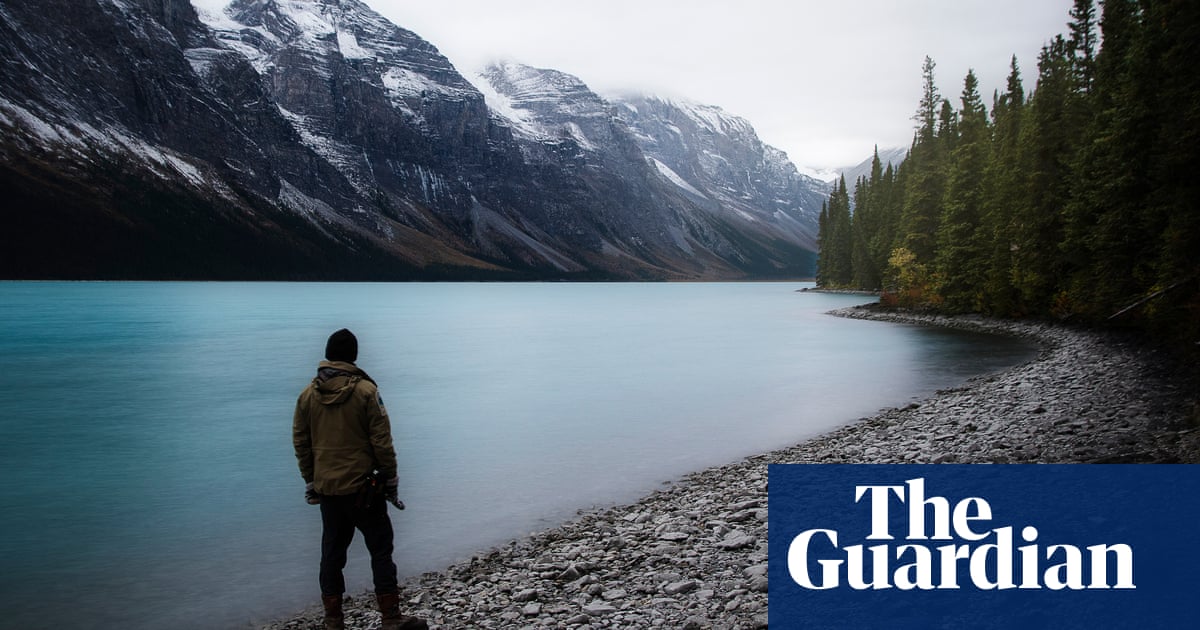World
Astonishment as missing Canadian hiker emerges after weeks in wilderness

He returned as a ghostly apparition on a forestry road in western Canada, moving slowly and unsteadily with the help of a walking stick in each frostbitten hand. A cut-up sleeping bag was wrapped around his legs, shielding them from the bitter cold.
The two oil and gas workers, who had spent the previous week surveying the trail, stared dumbfounded. When they took the sticks from his hands to help him into their truck, he nearly collapsed.
The harrowing details are a coda to the “unbelievable miracle” of a hiker who survived 50 days lost in the Canadian wilderness – and to the sustained and desperate search by his family and friends.
On Wednesday, the Royal Canadian Mounted Police confirmed that Sam Benastick, 20, was being treated at the hospital in Fort Nelson, British Columbia, more than seven weeks after he was last seen heading into the wild. He was suffering from frostbite and smoke inhalation caused when his makeshift shelter burned down.
Benastick set out on 7 October, on what was supposed to be a 10-day camping trip; he was reported missing by his family after he failed to return home on 17 October.
An avid outdoorsman, Benastick was destined for Redfern-Keily provincial park – 80,000 hectare swathe of “lush alpine meadows, forested valley bottoms, serrated peaks, glaciers, waterfalls and large valley lakes” in the northern reaches of the Rocky mountains.
Access is challenging: the park is 50 miles (80km) from the closest road. And its website warns the remote backcountry landscape can be unforgiving. “Be prepared for any weather conditions while visiting the park: you are in an isolated area and weather can change rapidly,” it says.
In recent days, temperatures have dipped to below -20C and snow has blanketed the ground.
For Benatstick’s family, news he had survived against the odds was vindication for the the sliver of hope they had long clung to.
On 23 October – more than a month before Benastick was eventually found – his aunt Karen Crocker Essex posted on Facebook that “tomorrow is a big day for our family with helicopters and a larger crew” to support this search. “Winter is setting in and we need to bring Sam home!”
More than 50 people, and search dogs, scoured the region for any hint that Benastick had avoided.
But a week later, his mother, Sandra Crocker, thanked the “endless volunteers” who had been unable to find a trace of her son. The official search had ended, but family refused to accept that Benastick had succumbed to the worsening conditions.
Family and friends speculated he might have run into trouble 19 miles into the hike, turning around to sleep in his car, possibly to a different location. They also scoured his online searches of hiking locations, and scouted the nearby Sikanni Chief River with no luck.
In the end, Benastick was found close to where the initial search had begun.
The oil rig workers piled a cold, fatigued and dehydrated Benastick into their truck and fed him their sandwiches. When they got him back into the range of mobile phone service, he called his father. His voice was weak.
Later that day fatigued Benastick told police he had stayed in his car and then walked to a creek, where he camped for nearly 15 days. He later built camp in a dried-out creek bed, before finding the road and flagging down the two oil workers.
The Central Okanagan Search and Rescue, which was involved in the search along crews from four other regions, called the discovery an “unbelievable miracle”.
Mike Reid, the general manager of the Buffalo Inn in Pink Mountain, BC, said he first received a message from the hotel owner that “Rob” had been found alive. For 24 days, Sam’s parents had stayed at the Buffalo Inn while formal search efforts intensified, ebbed and were eventually called off.
“I didn’t know who Rob was, but I had a flash of hope. So I texted Sam’s dad to check in on how they were doing. I didn’t want to get their hopes up. Within a minute, he called me back and said ‘they found him,’” said Reid.
After seeing the family through a string of low points, Reid said the news is “unbelievably good”.
During the search, Reid forwarded a newspaper clipping from 1969 to Benastick’s mother: it told the story of two survivors of a plane crash in the area, who lasted 49 days in the bitter cold before they were eventually found alive.
“I sent it to Sam’s mom and told her this could happen to your son,” he said. “And when I spoke with her yesterday, I said, ‘Hey, remember that clipping about the plane crash? And she said, ‘I’ve been thinking about it all day.’ Sam loves the outdoors. That’s why he was out here. And that’s how he survived.”
News of Benastick’s survival was bittersweet for the region, after hunter Jim Barnes and his dog Murphy were reported missing 18 October after leaving for a grouse hunting trip, less than 140 miles from where Benastick was last spotted.
Search teams found his truck as well as his keys, wallet, backpack and rifle. Neither Barnes nor Murphy were found near the vehicle. The search was suspended on 25 October, but a day later a frozen boot print and dog print were spotted along a river bank.









